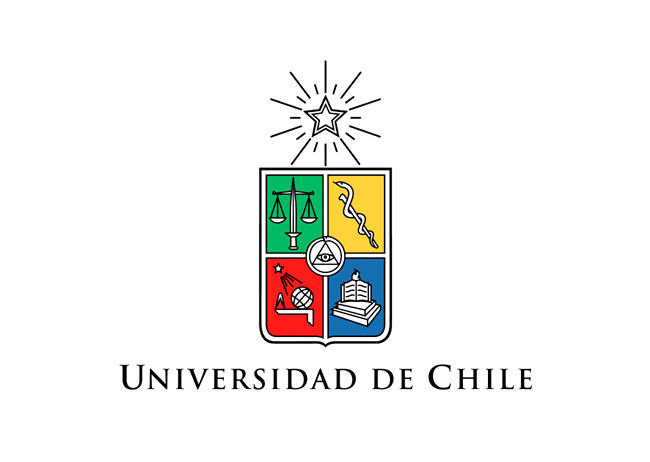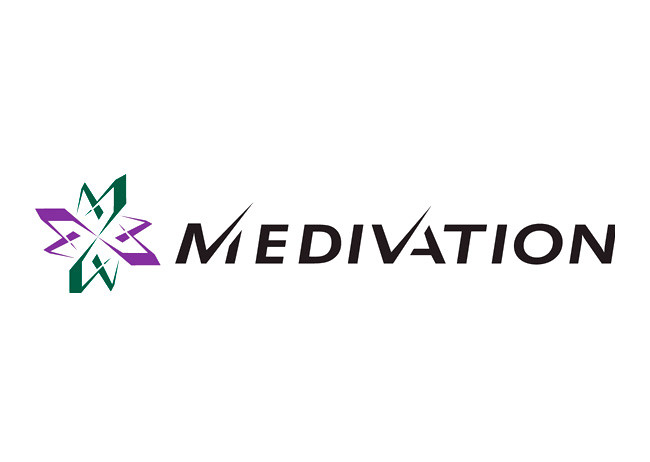
Introduction: A few years ago, a few of us—ecology, economics, and business graduates—
founded a non-profit organization called Third Millennium Alliance (TMA). We raised some
money and bought a lot of land in a critically endangered rainforest and established an
ecological reserve in coastal Ecuador. There was a small patch of previously degraded
land right in the middle of the reserve where we have built an innovative and surprisingly
comfortable research station out of bamboo. Immediately surrounding the house we are
designing/growing/building a living laboratory of sustainable resource management (i.e.
permaculture), which also serves as our field headquarters for biological field research and
forest monitoring. Our reserve (called the Jama-Coaque Reserve) is one of the last
remnants of Pacific Equatorial Forest. The reserve is located in the Tumbes-Choco-
Magdalena Biodiversity Hotspot, which is designated as one of the most biodiverse
and endangered ecosystems on earth. With only 2% of native forest remaining on
Ecuador’s coast today, our mission is to preserve the last remnants of forest and empower
local communities to restore what has already been lost.
Job Summary: As Research & Internship Manager the chosen candidate will work closely
with individuals from diverse backgrounds to facilitate project-based internship
experiences in the fields of research, conservation and permaculture. Projects are
developed to achieve the research goals of the organization and serve as catalysts for
interns as they navigate their academic and professional careers. As Research & Internship
Manager he/she will synthesize and report the information generated from the internship
program projects/investigations to the management team and directors to support the
greater conservation mission of the organization. Primary responsibilities are to manage
the internship program day-in and day-out and to manage the Research Station as an
operating center. He /She will be the responsible for interacting with all interns, visiting
researchers, and students groups. In addition, he/ she will serve as an advisor/
facilitator/mentor for interns and their related projects, with a specific focus on interns
carrying out Biological Field Research studies. The Manager of Permaculture Operations
carries out similar duties for the Permaculture-based interns. The Research & Internship
Manager is responsible for coordinating site logistics such as supply runs, assistance with
monthly field-based accounting, and managing the flow of people in and out of the reserve.
For more information on the position, including salary, benefits, and how to apply, please
visit www.tmalliance.org/about/opportunities.



 The European Molecular Biology Laboratory (EMBL) is one of the highest ranked scientific research organisations in the world. The Headquarters Laboratory is located in Heidelberg (Germany), with additional sites in Grenoble (France), Hamburg (Germany), Hinxton (UK) and Monterotondo (Italy).
The European Molecular Biology Laboratory (EMBL) is one of the highest ranked scientific research organisations in the world. The Headquarters Laboratory is located in Heidelberg (Germany), with additional sites in Grenoble (France), Hamburg (Germany), Hinxton (UK) and Monterotondo (Italy). Qualifications: Bachelor’s degree in biology or related field with several seasons of experience in similar field research programs. Must be in excellent physical condition (capable of climbing over rugged terrain and slippery rocks and able to lift approximately 50 lbs.) and have wilderness camping experience. Bird banding experience is required. Ability to work independently and as part of a team, and to get along with people of diverse backgrounds. Capable of working long hours outdoors in variable weather conditions. Comfortable on the water in small boats; rowing experience is helpful. For supervisors on inshore islands, experience operating small motorboats is required, and a personal vehicle may be necessary for these positions. Supervisors on offshore islands will not operate motorboats. Experience with the following: spotting scopes, binoculars, bird banding equipment, camping equipment (e.g. tents, composting toilets, etc), basic hand tools (e.g. hammer, drill driver, etc). A sense of humor, dedication to wildlife conservation, and passion for seabirds and isolated islands. Desirable: Previous experience leading and training field crews; Experience with predator control, hunting and/or trapping; Experience with the following: outboard engine care/basic maintenance, inflatable boat repair, boat safety equipment, solar power systems, and VHF radios. Must provide own binoculars, tent, sleeping pad, and sleeping bag.
Qualifications: Bachelor’s degree in biology or related field with several seasons of experience in similar field research programs. Must be in excellent physical condition (capable of climbing over rugged terrain and slippery rocks and able to lift approximately 50 lbs.) and have wilderness camping experience. Bird banding experience is required. Ability to work independently and as part of a team, and to get along with people of diverse backgrounds. Capable of working long hours outdoors in variable weather conditions. Comfortable on the water in small boats; rowing experience is helpful. For supervisors on inshore islands, experience operating small motorboats is required, and a personal vehicle may be necessary for these positions. Supervisors on offshore islands will not operate motorboats. Experience with the following: spotting scopes, binoculars, bird banding equipment, camping equipment (e.g. tents, composting toilets, etc), basic hand tools (e.g. hammer, drill driver, etc). A sense of humor, dedication to wildlife conservation, and passion for seabirds and isolated islands. Desirable: Previous experience leading and training field crews; Experience with predator control, hunting and/or trapping; Experience with the following: outboard engine care/basic maintenance, inflatable boat repair, boat safety equipment, solar power systems, and VHF radios. Must provide own binoculars, tent, sleeping pad, and sleeping bag.
 Duties include but are not limited to: monitoring productivity of roseate and common tern, banding tern chicks, finding nests in rocky areas, re-sighting fledglings and adults from field blinds, keeping accurate, organized, and detailed data/field notes, doing light maintenance, participating in non-lethal predator management, operating/maintaining small watercraft and associated vehicles, and educating the public. Responsibilities may vary due to the strengths of individuals.
Duties include but are not limited to: monitoring productivity of roseate and common tern, banding tern chicks, finding nests in rocky areas, re-sighting fledglings and adults from field blinds, keeping accurate, organized, and detailed data/field notes, doing light maintenance, participating in non-lethal predator management, operating/maintaining small watercraft and associated vehicles, and educating the public. Responsibilities may vary due to the strengths of individuals. Se ofrece puesto de asistente de investigación (bioquímico, biotecnólogo, magister en biología)/postdoctorado en microbiología molecular, en el marco del proyecto Fondecyt “Non-coding RNAs and translation efficiency coordinately contribute to the regulatory networks that control global gene expression”.
Se ofrece puesto de asistente de investigación (bioquímico, biotecnólogo, magister en biología)/postdoctorado en microbiología molecular, en el marco del proyecto Fondecyt “Non-coding RNAs and translation efficiency coordinately contribute to the regulatory networks that control global gene expression”.

 Skomer Island is situated just a mile off the coast of Pembrokeshire and is a haven for incredible wildlife. It is the most important seabird colony in Southern Britain, supporting thousands of Guillemots, Puffins, Razorbills and the worlds largest population of Manx Shearwaters, 316,000 pairs, not to mention the Fulmars, Kittiwakes and other seabirds. In the peak season we welcome up to 250 people per day who all come to witness the incredible wildlife on the island.
Skomer Island is situated just a mile off the coast of Pembrokeshire and is a haven for incredible wildlife. It is the most important seabird colony in Southern Britain, supporting thousands of Guillemots, Puffins, Razorbills and the worlds largest population of Manx Shearwaters, 316,000 pairs, not to mention the Fulmars, Kittiwakes and other seabirds. In the peak season we welcome up to 250 people per day who all come to witness the incredible wildlife on the island. Las organizaciones solicitantes deberán enviar un resumen de su proyecto, a través de la solicitud de donativo en línea correspondiente a proyectos de convocatoria que se encuentra en la página de la FGRA: www.fgra.org.mx
Las organizaciones solicitantes deberán enviar un resumen de su proyecto, a través de la solicitud de donativo en línea correspondiente a proyectos de convocatoria que se encuentra en la página de la FGRA: www.fgra.org.mx




 VOLUNTEER FIELD ASSISTANT: The Blue-throated Macaw Conservation Project
VOLUNTEER FIELD ASSISTANT: The Blue-throated Macaw Conservation Project


 El
El 



 La convocatoria está abierta para que se inscriban las instituciones de educación superior públicas y privadas, centros de investigación y desarrollo, empresas públicas y privadas, laboratorios, organizaciones y demás personas morales inscritas en el Registro Nacional de Instituciones y Empresas Científicas y Tecnológicas (Reniecyt).
La convocatoria está abierta para que se inscriban las instituciones de educación superior públicas y privadas, centros de investigación y desarrollo, empresas públicas y privadas, laboratorios, organizaciones y demás personas morales inscritas en el Registro Nacional de Instituciones y Empresas Científicas y Tecnológicas (Reniecyt).
